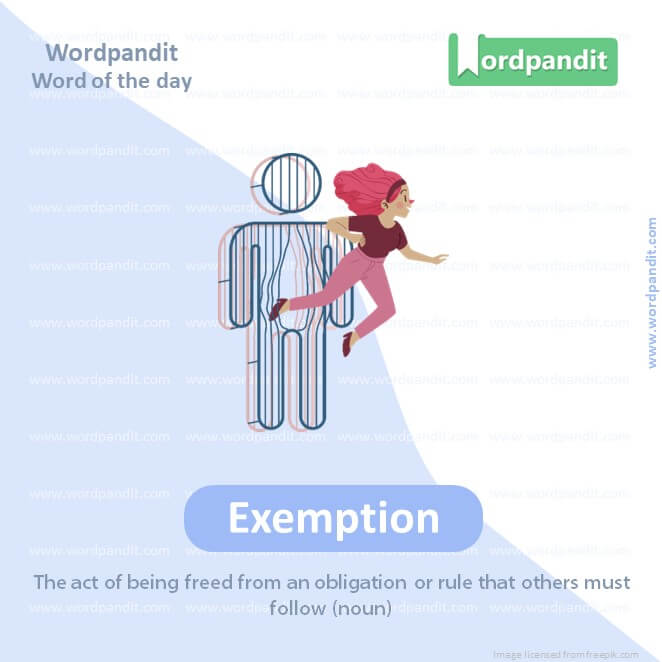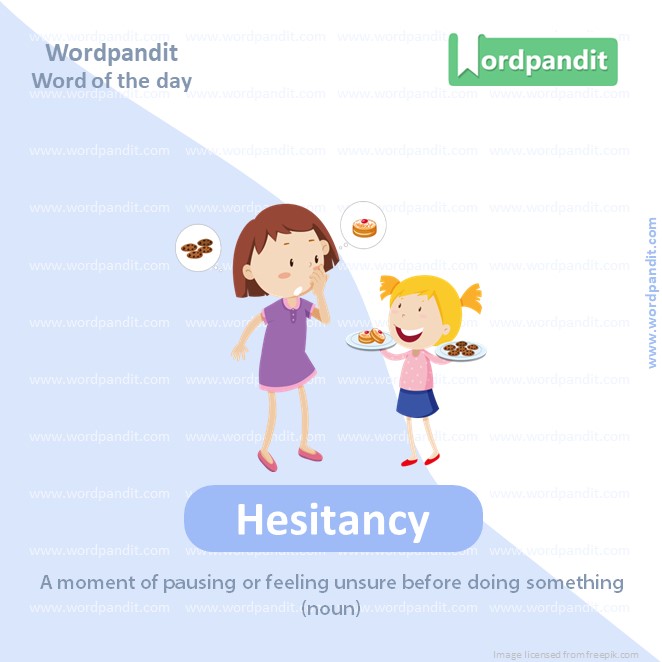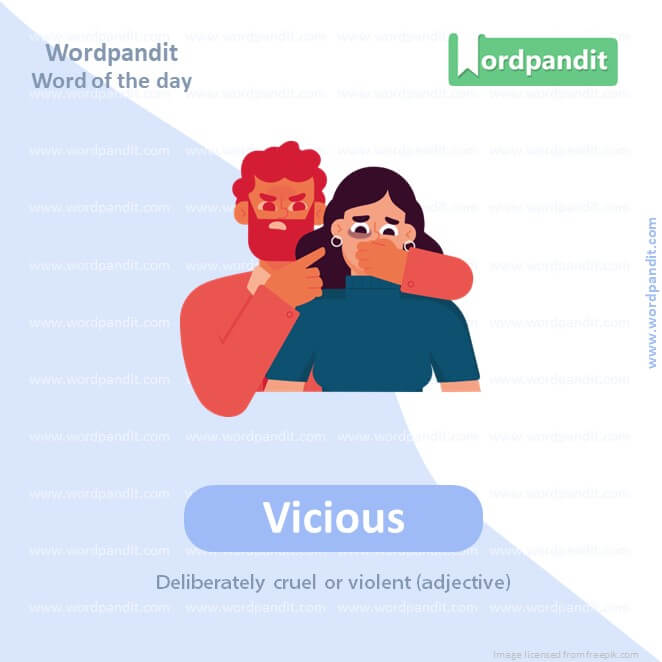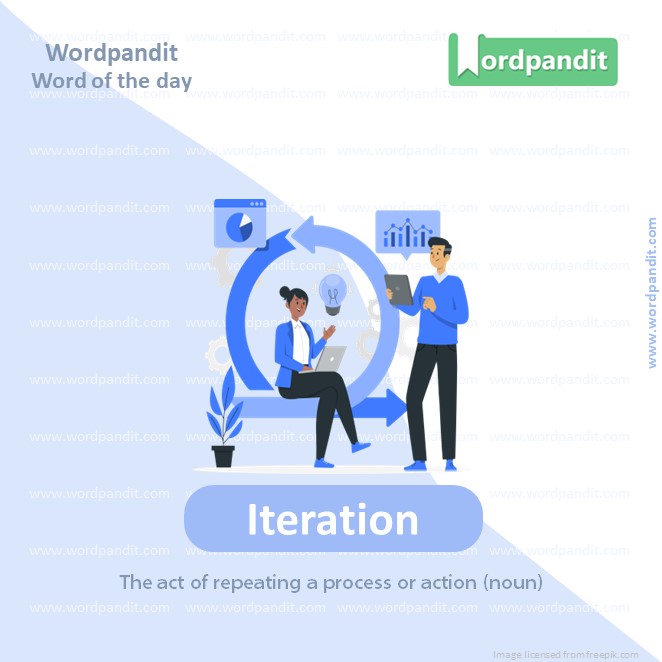Daily Vocabulary Words: Enhance Your Lexicon with Leading Newspapers & Publications
Welcome to the Daily Vocabulary section at Wordpandit!
Our mission is straightforward: to bring you essential vocabulary words featured in top newspapers and publications worldwide. By focusing on words you’ll encounter in renowned sources, we aim to help you enhance your vocabulary effectively and practically.
Our selection includes words from:
– The New York Times
– The Washington Post
– Scientific American
– BBC
– The Guardian
– Psychology Today
– Wall Street Journal
– The Economist
– The Hindu
– The Times of India
– The Economic Times
– Hindustan Times
– Live Mint
– The Indian Express
– And many more.
We are committed to your vocabulary development. Simply visit this section regularly and explore the daily posts. This is your go-to repository for commonly used words, providing significant practical benefits by familiarizing you with vocabulary from the leading publications listed above.
Make it a habit to visit our website daily and expand your lexicon with words from top newspapers and publications. (edited)

WORD-1: Exemption
CONTEXT: The number of children claiming an exemption to existing mandates has risen much more slowly, to just 2.6 percent that same year.
SOURCE: New York Times
EXPLANATORY PARAGRAPH: Exemption is like when you get a free pass and don’t have to do a chore that everyone else has to do. It means you don’t have to follow a rule or do something that others do.
MEANING: The act of being freed from an obligation or rule that others must follow (noun)
PRONUNCIATION: eg-ZEMP-shun
SYNONYMS: freedom, exclusion, release, exception, immunity, absolution, dispensation
USAGE EXAMPLES:
1. She received an exemption from the final exam due to her excellent grades.
2. The doctor gave him an exemption from gym class.
3. Certain foods are given tax exemptions.
4. He was happy to get an exemption from cleaning duties.

WORD-2: Imperceptible
CONTEXT: Even somewhat imperceptible declines in vaccination coverage can open up once-unthinkable vulnerabilities — and not just for measles.
SOURCE: New York Times
EXPLANATORY PARAGRAPH: Imperceptible is like when something is so tiny or quiet that you can hardly see it or hear it, like a whisper or a tiny bug. It means something is very hard to notice.
MEANING: So small, quiet, or subtle that it’s hard to notice or see (adjective)
PRONUNCIATION: im-pur-SEP-tuh-bul
SYNONYMS: undetectable, invisible, faint, minute, subtle, indistinguishable, microscopic
USAGE EXAMPLES:
1. The changes in the weather were almost imperceptible.
2. Her smile was so small it was nearly imperceptible.
3. The sound was imperceptible to the human ear.
4. The difference in color was imperceptible to most people.

WORD-3: Hesitancy
CONTEXT: Americans often think of vaccine hesitancy as primarily ideological, but demographic, socioeconomic and educational drivers may be even more powerful, and as best we can measure them, the ideological drivers are also moving relatively slowly, too.
SOURCE: New York Times
EXPLANATORY PARAGRAPH: Hesitancy is like when you’re not sure if you want to jump into the pool, so you stand at the edge and think about it for a while. It means being unsure or slow to do something.
MEANING: A moment of pausing or feeling unsure before doing something (noun)
PRONUNCIATION: HEH-zih-tan-see
SYNONYMS: reluctance, uncertainty, doubt, indecision, wavering, delay, pause
USAGE EXAMPLES:
1. His hesitancy to speak up was noticeable.
2. There was a moment of hesitancy before she answered the question.
3. The team showed no hesitancy in starting the project.
4. He felt hesitancy about making a big purchase.

WORD-4: Vicious
CONTEXT: The largest outbreaks were in countries most Americans regard as pretty remote (Kazakhstan, Kyrgyzstan and Russia), there is also a vicious surge in Britain.
SOURCE: New York Times
EXPLANATORY PARAGRAPH: Vicious is like when a big dog growls and shows its teeth, looking really mean and scary. It means something is very mean, nasty, or dangerous.
MEANING: Deliberately cruel or violent (adjective)
PRONUNCIATION: VISH-us
SYNONYMS: cruel, mean, nasty, savage, fierce, brutal, ferocious
USAGE EXAMPLES:
1. The vicious dog scared everyone in the neighborhood.
2. She made a vicious comment that hurt his feelings.
3. The storm was so vicious it knocked down trees.
4. He received a vicious punch during the fight.

WORD-5: Iteration
CONTEXT: This is all, of course, a new iteration of an old argument. People on both sides seem to be covering the same old song every few years, just with new lyrics.
SOURCE: New York Times
EXPLANATORY PARAGRAPH: Iteration is like when you draw a picture and then keep making small changes to make it better each time. It means doing something over and over, each time a bit differently.
MEANING: The act of repeating a process or action (noun)
PRONUNCIATION: it-uh-RAY-shun
SYNONYMS: repetition, cycle, version, repeat, recurrence, redo, renewal
USAGE EXAMPLES:
1. The new iteration of the app has better features.
2. Each iteration of the design improved the product.
3. We went through several iterations before finalizing the plan.
4. The scientist conducted the experiment through many iterations.
WORD-6: Rampant
CONTEXT: I knew from my father and his male friends that hostility toward women ran rampant in all-male settings.
SOURCE: New York Times
EXPLANATORY PARAGRAPH: Rampant is like when weeds grow all over the garden and you can’t stop them. It means something is spreading very quickly and wildly.
MEANING: Flourishing or spreading unchecked (adjective).
PRONUNCIATION: RAM-puhnt
SYNONYMS: widespread, uncontrolled, unchecked, unrestrained, raging, out of control, prevalent
USAGE EXAMPLES:
1. The disease was rampant in the city.
2. Rumors ran rampant after the announcement.
3. The garden was overgrown with rampant weeds.
4. Crime became rampant in the area.
WORD-7: Infidelity
CONTEXT: The most common ‘final straw’ reasons were infidelity, domestic violence and substance use.
SOURCE: New York Times
EXPLANATORY PARAGRAPH: Infidelity is like when someone promises to be your best friend forever but then breaks that promise and stops being your friend. It means not being loyal or faithful.
MEANING: The action of being unfaithful to a spouse or partner (noun).
PRONUNCIATION: in-fuh-DEL-ih-tee
SYNONYMS: unfaithfulness, cheating, betrayal, disloyalty, adultery, deceit, untrustworthiness
USAGE EXAMPLES:
1. Infidelity can hurt relationships deeply.
2. He admitted to infidelity in his marriage.
3. Trust was broken due to her infidelity.
4. Infidelity caused a lot of pain in the family.
WORD-8: Cohabitation
CONTEXT: The number of Americans who said that single motherhood and unmarried cohabitation were bad for society increased by several percentage points from 2018 to 2021.
SOURCE: New York Times
EXPLANATORY PARAGRAPH: Cohabitation is like when two people or animals live together in the same house or place. It means sharing a living space with someone.
MEANING: The state of living together and sharing a home (noun).
PRONUNCIATION: koh-hab-ih-TAY-shun
SYNONYMS: living together, sharing, residing together, coexisting, communal living, joint living, domestic partnership
USAGE EXAMPLES:
1. Cohabitation before marriage is common nowadays.
2. They decided on cohabitation instead of getting married right away.
3. The couple enjoyed cohabitation in their cozy apartment.
4. Cohabitation can teach partners a lot about each other.
WORD-9: Stigmatized
CONTEXT: After World War II, when marriage rates were peaking, divorces were hard to come by and heavily stigmatized, and shotgun marriages were far more common.
SOURCE: New York Times
EXPLANATORY PARAGRAPH: Stigmatized is like when someone makes fun of you for something and others start thinking badly of you because of that. It means being unfairly treated or looked down upon.
MEANING: Described or regarded as worthy of disgrace or disapproval (verb/adjective).
PRONUNCIATION: STIG-muh-tized
SYNONYMS: shamed, disgraced, branded, condemned, disapproved, scorned, ostracized
USAGE EXAMPLES:
1. He felt stigmatized because of his past mistakes.
2. Mental health issues are often stigmatized in society.
3. The group was unfairly stigmatized by the community.
4. She worked to help those who were stigmatized by poverty.
WORD-10: Floating
CONTEXT: There’s an idea that’s been floating around for a few years that when it comes to marriage, wealthy elites hold luxury beliefs.
SOURCE: New York Times
EXPLANATORY PARAGRAPH: Floating is like when you put a toy boat in the water, and it stays on top without sinking. It means staying on the surface of a liquid or moving gently through the air.
MEANING: Staying on the surface of a liquid or moving lightly through the air (verb/adjective).
PRONUNCIATION: FLOH-ting
SYNONYMS: drifting, gliding, buoyant, hovering, levitating, sailing, wafting
USAGE EXAMPLES:
1. The leaf was floating on the water.
2. She saw a balloon floating up to the sky.
3. He felt like he was floating on air after hearing the good news.
4. The clouds looked like they were floating across the sky.
Vocabulary Words with Meaning
Penetrating the rich tapestry of language, the essence of ‘vocabulary words with meaning’ is a crucial aspect. It’s these seeds of knowledge that bud into fluent conversations and comprehensive understanding. The knack of grasping ‘vocabulary words with meaning’ is pivotal in language learning, but it demands a nuanced approach and strategy.
Learning ‘vocabulary words with meaning’ isn’t about mechanically memorizing heaps of words. It’s about building connections and creating a profound understanding of these words. A promising approach to assimilate ‘vocabulary words with meaning’ involves utilizing a wide range of resources including literature, films, music, and digital content. This immersion provides a broad context and diverse settings for these words, simplifying their comprehension and use.
When you’re focusing on ‘vocabulary words with meaning’, remember to incorporate memory-enhancing techniques into your learning regimen. Tools like flashcards or recall-based applications can aid significantly in long-term retention of these words. Additionally, mnemonic strategies, associating words with distinctive images or stories enhance memory recall and understanding.
The journey of mastering ‘vocabulary words with meaning’ also benefits greatly from practice and application. Engage in conversations using the language, express your thoughts in writing, and try to incorporate newly learned words into your routine. This not only enhances your familiarity with the words but also aids in an intimate understanding of their connotations and denotations.
To sum up, learning ‘vocabulary words with meaning’ is akin to assembling a jigsaw puzzle: it requires patience, strategy, and persistence. But the picture that finally emerges is a beautiful tapestry of language – vivid, articulate, and expressive. So, set your sails toward the voyage of ‘vocabulary words with meaning’, and discover the joy of speaking and understanding a language with finesse.













